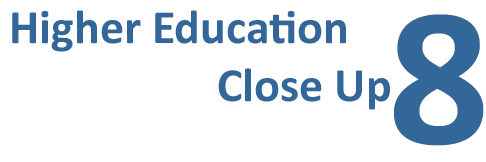What would socially-just international measures of the quality of teaching in higher education look like?
Paul Ashwin, Department of Educational Research, Lancaster University, Rachel Sweetman Department of Education, University of Oslo
Abstract
This paper is focused on the challenges of comparing the quality of undergraduate degrees internationally in a way that is socially-just. It attempts to offer a constructive response to ongoing concerns about the issues involved in devising international measures and comparisons of teaching quality in higher education. The influence of international comparison can be significant, but the process of measuring and comparing can have unintended and undesirable impacts on institutional and individual practices. In different ways each of the keynotes think pieces highlight the need to develop socially-just international measures of the quality of teaching in higher education. Jenni Case shows the importance of developing arguments for socially-just education that have purchase in a world dominated by metrics, whilst Jan McArthur highlights the need to bring together ‘the near’ and ‘the far’; in this case ‘the near’ of close-up measures of teaching and learning and ‘the far’ of international measures of the quality of teaching. Finally Monica McLean’s piece highlights the need to develop quality measures that reflect students’ engagement with knowledge and thus provide a sense of epistemic justice. Starting from a discussion of the limited insights rankings offer on teaching or programme quality, we briefly examine some alternative attempts to assess and compare quality internationally that have more of a teaching focus than traditional rankings . We argue that rankings, and recent approaches to compare degree quality or outcomes, lack validity as ways of comparing the learning that takes place in universities or teaching quality. They fail to engage with crucial aspects of higher education including the transformational potential of higher education and students’ engagement with disciplinary knowledge. Based on these limitations, we identify criteria for alternative forms of comparison which avoid the unintended consequences which undermine existing approaches. This paper offers a concrete contribution to ongoing debates and the potential for more empirical work investigating the benefits and limitations of differing approaches to comparison. We argue for changes in how league table data are utilised and interpreted, while presenting an alternative that would offer more valid insights into teaching quality.
Keywords
Comparability, learning outcomes, measurement
Link to Full Paper (If submitted)
Conference Organisers
Paul Trowler
Lancaster University, UK
Alice Jesmont
Lancaster University, UK
Malcolm Tight
Lancaster University, UK
Paul Ashwin
Lancaster University, UK
Murray Saunders
Lancaster University, UK
Chrissie Boughey
Rhodes University, South Africa
Suellen Shay
University of Cape Town, SA

